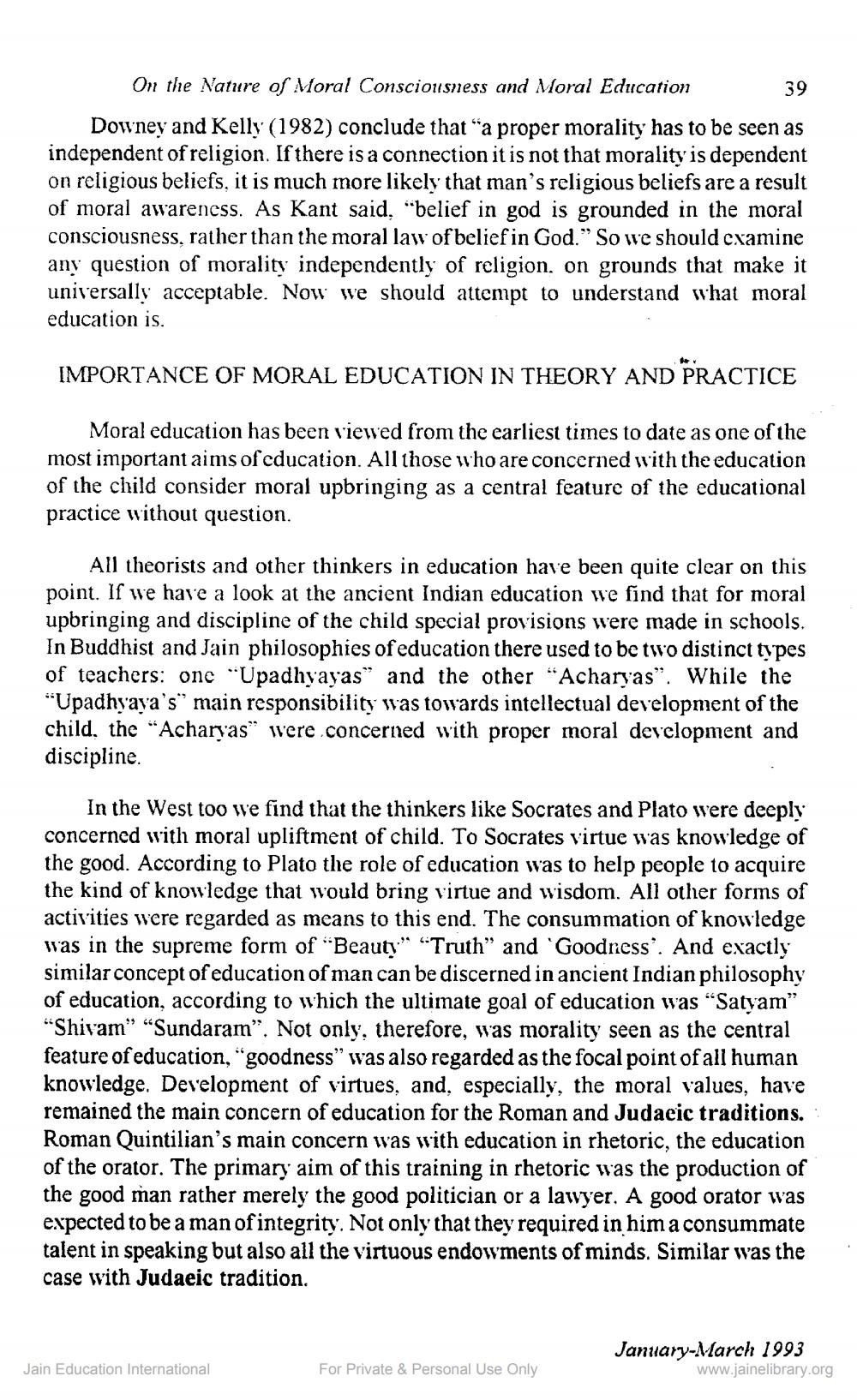________________
On the Nature of Moral Consciousness and Moral Education
39
Downey and Kelly (1982) conclude that "a proper morality has to be seen as independent of religion. If there is a connection it is not that morality is dependent on religious beliefs, it is much more likely that man's religious beliefs are a result of moral awareness. As Kant said, "belief in god is grounded in the moral consciousness, rather than the moral law of belief in God." So we should examine any question of morality independently of religion. on grounds that make it universally acceptable. Now we should attempt to understand what moral education is.
IMPORTANCE OF MORAL EDUCATION IN THEORY AND PRACTICE
Moral education has been viewed from the earliest times to date as one of the most important aims of education. All those who are concerned with the education of the child consider moral upbringing as a central feature of the educational practice without question.
All theorists and other thinkers in education have been quite clear on this point. If we have a look at the ancient Indian education we find that for moral upbringing and discipline of the child special provisions were made in schools. In Buddhist and Jain philosophies of education there used to be two distinct types of teachers: one "Upadhyayas" and the other "Acharyas". While the "Upadhyaya's" main responsibility was towards intellectual development of the child, the "Acharyas" were concerned with proper moral development and discipline.
In the West too we find that the thinkers like Socrates and Plato were deeply concerned with moral upliftment of child. To Socrates virtue was knowledge of the good. According to Plato the role of education was to help people to acquire the kind of knowledge that would bring virtue and wisdom. All other forms of activities were regarded as means to this end. The consummation of knowledge was in the supreme form of "Beauty" "Truth" and 'Goodness. And exactly similar concept of education of man can be discerned in ancient Indian philosophy of education, according to which the ultimate goal of education was "Satyam" "Shivam" "Sundaram". Not only, therefore, was morality seen as the central feature of education, "goodness" was also regarded as the focal point of all human knowledge. Development of virtues, and, especially, the moral values, have remained the main concern of education for the Roman and Judaeic traditions. Roman Quintilian's main concern was with education in rhetoric, the education of the orator. The primary aim of this training in rhetoric was the production of the good man rather merely the good politician or a lawyer. A good orator was expected to be a man of integrity. Not only that they required in him a consummate talent in speaking but also all the virtuous endowments of minds. Similar was the case with Judaeic tradition.
Jain Education International
For Private & Personal Use Only
January-March 1993 www.jainelibrary.org




